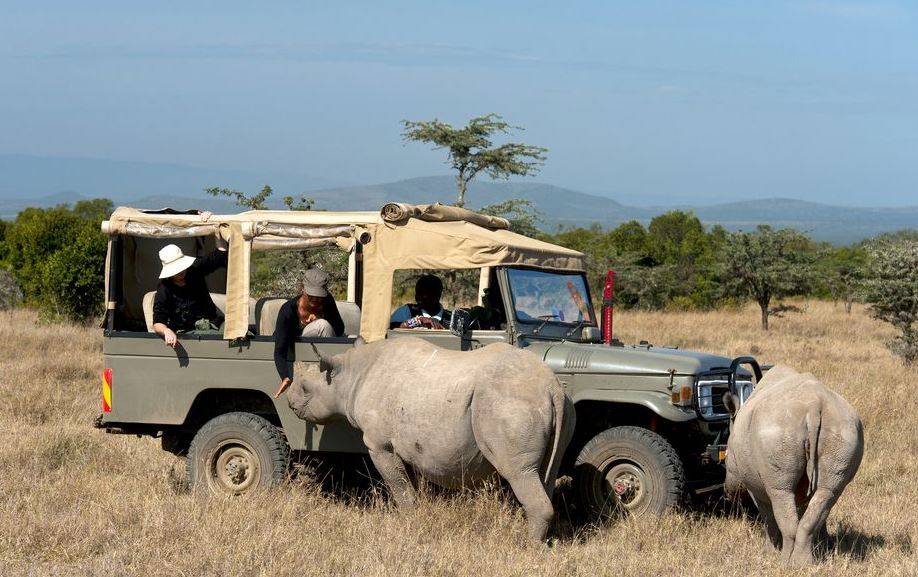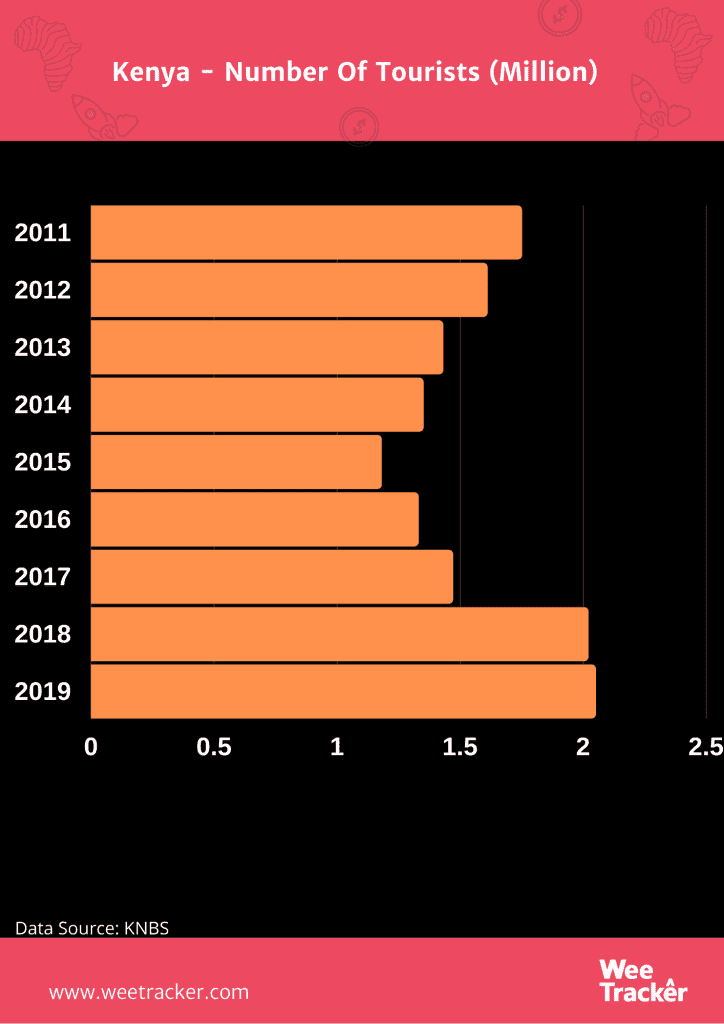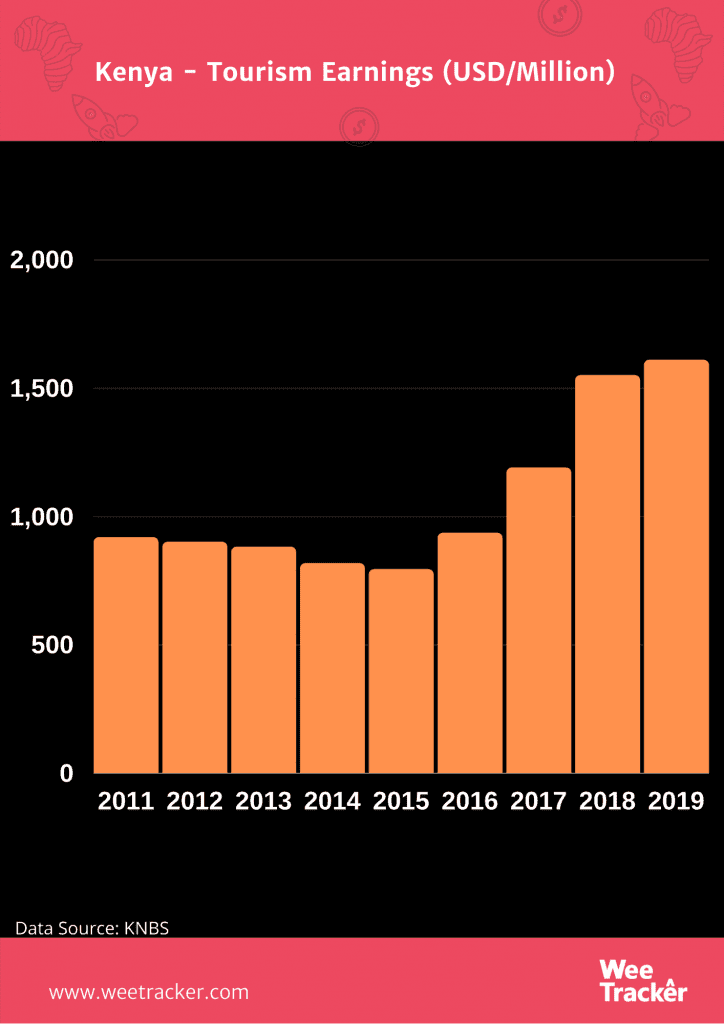Gauging The Tech-Backed Plan To Save Kenya’s Crippled Top-Earning Industry

Saving Kenyan tourism amid the pandemic: Tech to the rescue?
Tourism and travel make up some of the worst-hit industries of the economic downturn triggered by the global pandemic. In Kenya where tourism is the second-largest source of foreign earnings — just behind agricultural exports — the slowdown is sure to be a major setback. Or is it?
Well, not if the tourism body in Kenya can find a clever way to use the tools at their disposal to keep tourists interested, and perhaps whet their appetite for safaris, such that they want to rush into the country once global travel really kicks off and countries open up.
And it looks like that is pretty much the plan — constantly remind people what they are missing out on and use that longing and yearning to lure them in. At least, that is basically the idea behind the newly unveiled virtual safaris launched by Kenya’s Ministry of Tourism.
On Tuesday, June 2, Kenya’s Cabinet Secretary for Tourism and Wildlife, Najib Balala, officially launched a Virtual Safari Livestream campaign to showcase game safaris in some parks and reserves across the country.
The campaign will go on for six weeks across the country and will be part of the ongoing “Magic Awaits” campaign led by the Kenya Tourism Board.

The Magic Awaits campaign is targeted at keeping the world connected to Kenya even during the ongoing COVID-19 pandemic which has forced movement restrictions and crippled industries.
“Our international tourism business is completely cut off and we have to still share destination memories with travelers and that is why we are unveiling a virtual tour safari to connect visitors with the destination,” CS Najib Balala said.
“This venture which begins here at the Nairobi National Park will allow us to document our diverse wildlife in the National Parks and game reserves, thrilling adventures, beautiful lodges, and unique cultures and conservation projects that Kenya has become world-famous for. We shall be live streaming and sharing this content every week to bring Kenya to Kenyans and to the world at large,” the Cabinet Secretary added.
Why virtual safaris?
The outbreak of the novel coronavirus halted travel globally. Even though the month of May saw an encouraging uptick, the slowdown has not subsided in the least.
With travel suppressed and nations partly shut, Kenya’s international tourism business — which recorded earnings of KES 163.56 Bn (USD 1.61 Bn) in 2019 thanks to an increase in the number of visitors — has suffered an evisceration.
Kenya is among the leading tourism hotspots in Africa, even though intermittent political upheavals and insurgent attacks hamstring the sector. The country offers a broad range of tourist attractions which include sandy beaches, safari tours, and national parks, not to mention plush suites and accommodations.
In 2019, the country’s earnings from tourism rose 3.9 percent compared to 2018 when there were over 2 million international arrivals, with international tourists spent over KES 157 Bn (USD 1.47 Bn).

Kenya is East Africa’s largest economy and according to the World Travel and Tourism Council (WTTC), the tourism industry’s total contribution to GDP has reached KES 588.6 Bn (USD 5.9 Bn) in Kenya as of 2015.
The WTTC forecasts the total contribution of tourism to Kenya’s GDP to rise by 5.1 percent per annum to KES 964.2 Bn (USD 9.04 Bn or approximately 10.3 percent of GDP) by 2025.
Tourism earned Kenya USD 1.55 Bn in 2018 after the number of visitors rose by 37 percent. The earnings were a 31.2 percent improvement from the USD 1.19 Bn earned in 2017. Statistics show that there were 2,025,206 international visitor arrivals compared with 1,474,671 in the previous year.
Visitors from the United States represent Kenya’s leading source of visitors, growing by 11.12 percent with 225,157 arrivals in 2018.
Other top source markets for Kenya are Tanzania, Uganda, United Kingdom, India, China, Germany, Italy, South Africa, and France. The nature of the visits mostly entails holidaying, though a significant number of others come for business and conference, as well as visiting friends and relatives.
With numbers like that, it’s clear why Kenya’s tourism body is keen on leveraging tech for the fundamental purpose of marketing the experiences which the country has in the offing. These experiences happen to be a key driver of the country’s economy; Kenya relies on tourism as a major source of foreign exchange and jobs.
The Tourism Ministry’s latest play is in keeping with global trends that have seen the demand for indoor activities spike. The wider tourism industry appears to be getting in on the act too — various nations and tourist organisations have resorted to online tours and experiences as the quest for discovery seem to have shifted to virtual.
Kenya Tourism Board CEO, Dr. Betty Radier, said that the board is working to ensure people around the world are connected to the destination during this period.
“Keep an eye on the Magical Kenya social media sites for ways to interact with the expedition, ask questions, send them, this will be your chance to explore Kenya virtually from home,” she added.
No stranger to this kind of development, the Kenya Tourism Board has been involved in something similar in the past. Back in 2015, it facilitated the incorporation of Google Street View at the Samburu National Reserve, which allows individuals to see elephants in Samburu National Reserve in Street view.
Samburu national park becomes the 1st park in Kenya to be accessible with street view.
— Kenya Tourism Board (@magicalkenya) September 15, 2015
The project was no cakewalk as it involved a total of 845,000 hours of GPS tracking, 20,655 recorded field observations, and the individual identification of 1,450 elephants that had to be named.
Featured Image Courtesy: NairobiWire